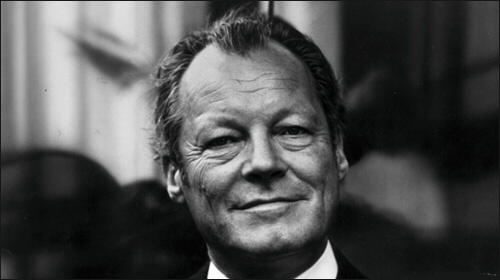On this day on 3rd October
On this day in 52 BC Vercingetorix, leader of the Gauls, surrenders to the Romans under Julius Caesar, ending the siege and battle of Alesia.
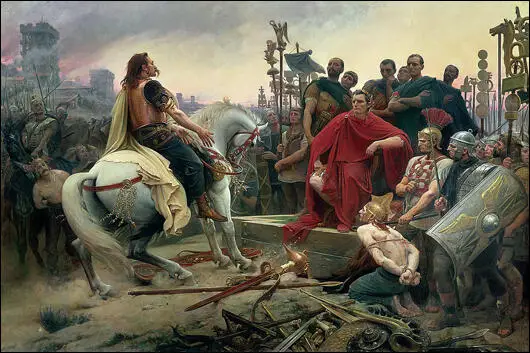
On this day in 42 BC the first Battle of Philipp took place: Mark Antony, Marcus Aemilius Lepidus and Octavian fight an indecisive battle with Caesar's assassins Marcus Brutus and Gaius Cassius. After the battle Octavian returned to Rome and Mark Antony went on to govern the east, whereas Marcus Aemilius Lepidus went on to govern Hispania and the province of Africa.
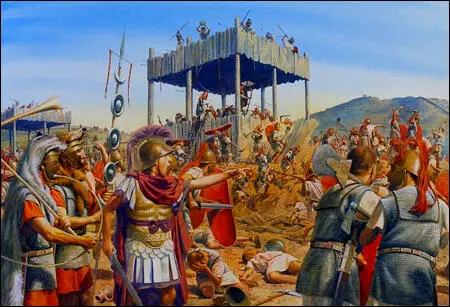
On this day in 1863 US President Abraham Lincoln, expressing gratitude for a pivotal Union Army victory at Gettysburg, announces that the nation will celebrate an official Thanksgiving holiday on the last Thursday in November.
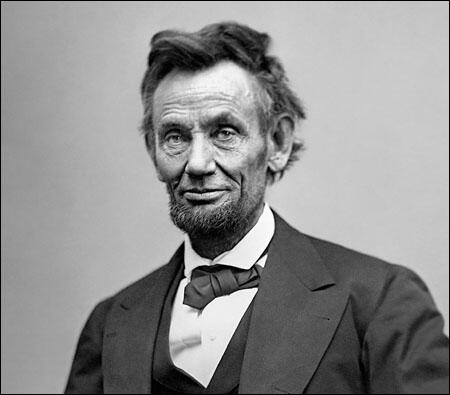
On this day in 1904 Mary McLeod Bethune established the Daytona Educational and Industrial Institute for Negro Girls. The school was a great success and by 1922 it had 300 students and 25 staff. The following year it was merged with the Cookman Institute for Men and from 1929 became known as the Bethune-Cookman College. Bethune played an active role in the civil rights movement. A member of the NAACP, Bethune defied Jim Crow customs and all seating in her schools were desegregated. Although threatened by the Ku Klux Klan, Bethune and her staff always voted in elections. Bethune was also president of the National Association of Colored Women (1924 to 1928) and in 1935 established the National Council of Negro Women. In these posts Bethune campaigned against lynching and discrimination in employment.
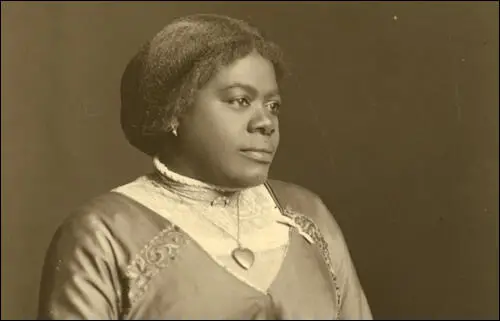
On this day in 1913 US Federal income tax signed into law (at 1%) by President Woodrow Wilson.
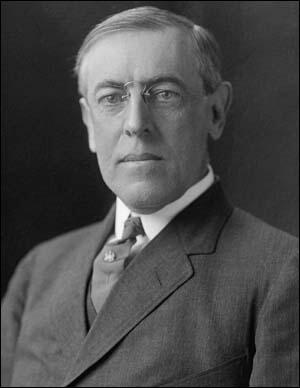
On this day in 1929 British Labour Government led by Ramsay MacDonald resumes diplomatic relations with the Soviet Union.
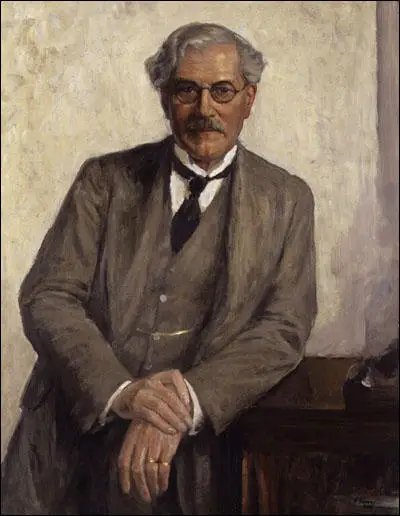
On this day in 1931 Edith Elizabeth Downing, aged 75 died in Peaslake, Surrey.
Edith Downing was born in Cardiff in 1857. She studied at the Slade School of Fine Art (1892-93) and exhibited at the Royal Academy for the first time in 1892. In 1898 she had two sculptures accepted. Over the next few years she became a regular exhibitor at the academy.
Downing joined the Central Society for Women's Suffrage in 1903 and its successor, London Society for Women's Suffrage in 1906. Downing became frustrated by the lack of success of these organisations and in 1908 she became a member of the Women Social & Political Union. The following year she made small portraits of Christabel Pankhurst and Annie Kenney, that were sold for WSPU funds.
Downing joined forces with Marion Wallace-Dunlop to organise a series of spectacular WSPU processions. The most impressive of these was the Woman's Coronation Procession on 17th June 1911. Flora Drummond led off on horseback with Charlotte Marsh as colour-bearer on foot behind her. She was followed by Marjorie Annan Bryce in armour as Joan of Arc.
The art historian, Lisa Tickner, described the event in her book The Spectacle of Women (1987): "The whole procession gathered itself up and swung along Northumberland Avenue to the strains of Ethel Smyth's March of the Women... The mobilisation of 700 prisoners (or their proxies) dressed in white, with pennons fluttering from their glittering lances, was, as the Daily Mail observed, "a stroke of genius". As The Daily News reported: "Those who dominate the movement have a sense of the dramatic. They know that whereas the sight of one woman struggling with policemen is either comic or miserably pathetic, the imprisonment of dozens is a splendid advertisement."
During the 1910 General Election the NUWSS organised the signing petitions in 290 constituencies. They managed to obtain 280,000 signatures and this was presented to the House of Commons in March 1910. With the support of 36 MPs a new suffrage bill was discussed in Parliament. The WSPU suspended all militant activities and on 23rd July they joined forces with the NUWSS to hold a grand rally in London. When the House of Commons refused to pass the new suffrage bill, the WSPU broke its truce on what became known as Black Friday on 18th November, 1910, when its members clashed with the police in Parliament Square. Edith Downing was one of the women arrested during this demonstration but was released without charge. On 23rd November she was arrested again and sentenced to seven days' imprisonment for throwing a stone through a window of Somerset House.
Christabel Pankhurst decided that the WSPU needed to intensify its window-breaking campaign. On 1st March, 1912, a group of suffragettes volunteered to take action in the West End of London. The Daily Graphic reported the following day: "The West End of London last night was the scene of an unexampled outrage on the part of militant suffragists.... Bands of women paraded Regent Street, Piccadilly, the Strand, Oxford Street and Bond Street, smashing windows with stones and hammers." Edith Downing was arrested for taking part in this demonstration. While in Holloway Prison she took part in the mass hunger strike and was forcibly fed before being released.
Edith Downing, who lived with Ellen Sparks for the last twenty-five years of her life, died in Peaslake, Surrey aged 75 on 3rd October 1931.
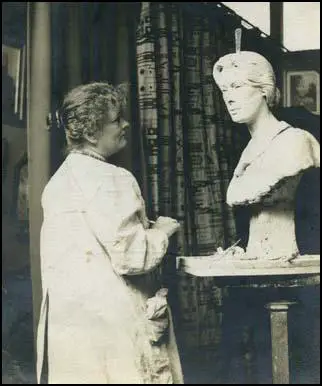
On this day in 1940 Neville Chamberlain resigned from Winston Churchill'ss coalition Government due to ill health. He was suffering from terminal cancer and died on 9 November 1940. His official biographer, Keith Feiling, wrote in 1946: "Though he might fail to show it in public, a man different from what he was to kith and kin and friends: simple, sensitive, and selfless, arduous, just, and merciful. For a short time, measured by the long scale of history, the standards by which he marched have been cast down and trampled on by brute force. But they will be raised again."
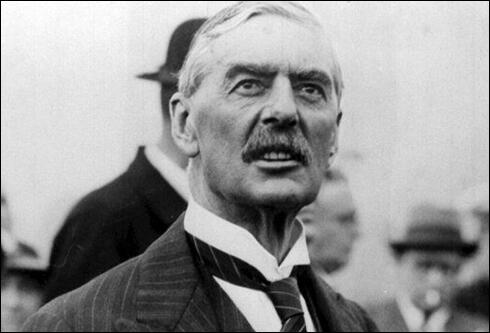
On this day in 1941 Adolf Hitler broadcast on German radio and update on Operation Barbarossa. He claimed that Germany had defeated the Soviet Union: "We had no idea how gigantic the preparations of this enemy were against Germany and Europe and how immeasurably great was the danger, how by the skin of our teeth we have escaped the destruction not only of Germany but also of Europe. That I can say now. I say it only today because I can say that this enemy is already broken and will never rise again."
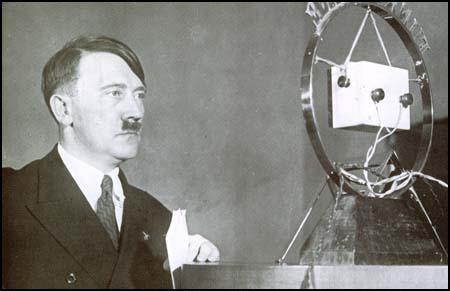
On this day in 1941 the Germans blew up six synagoges in Paris. The New York Times reported: "Attempts to blow up seven synagogues were made in Paris during the hours between 1 A.M. and 5 A.M. today. In six instances they were successful, and the damage done was considerable, only the external walls of the structures remaining."
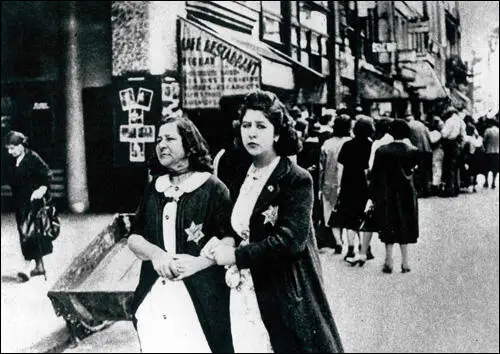
On this day in 1957 Willy Brandt is elected mayor of West Berlin (1957-1966). Brandt was a strong supporter of Britain joining the European Economic Community. In December 1967 he argued "Our own interest, which it is up to us to represent, and our understanding of the state of European interests, obliges us to speak a clear language and urge our French neighbours not to make things too difficult for themselves and others." In 1969 Brandt became Chancellor of Federal Republic of Germany (West Germany). He continued with his policy of Ostpolitik and in 1970 negotiated an agreement with the Soviet Union accepting the frontiers of Berlin. Later that year he signed a non-aggression pact with Poland.
